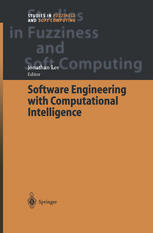

Most ebook files are in PDF format, so you can easily read them using various software such as Foxit Reader or directly on the Google Chrome browser.
Some ebook files are released by publishers in other formats such as .awz, .mobi, .epub, .fb2, etc. You may need to install specific software to read these formats on mobile/PC, such as Calibre.
Please read the tutorial at this link: https://ebookbell.com/faq
We offer FREE conversion to the popular formats you request; however, this may take some time. Therefore, right after payment, please email us, and we will try to provide the service as quickly as possible.
For some exceptional file formats or broken links (if any), please refrain from opening any disputes. Instead, email us first, and we will try to assist within a maximum of 6 hours.
EbookBell Team

4.1
50 reviewsThis edited book invites the reader to explore how the latest technologies developed in computational intelligence can be extended and applied to software engineering. Leading experts demonstrate how this recent confluence of software engineering and computational intelligence provides a powerful tool to address the increasing demand for complex applications in diversified areas, the ever-increasing complexity and size of software systems, and the inherently imperfect nature of the information. The presented treatments to software modeling and formal analysis permit the extension of computational intelligence to various phases in software life cycles, such as managing fuzziness resident in the requirements, coping with fuzzy objects and imprecise knowledge, and handling uncertainty encountered in quality prediction.